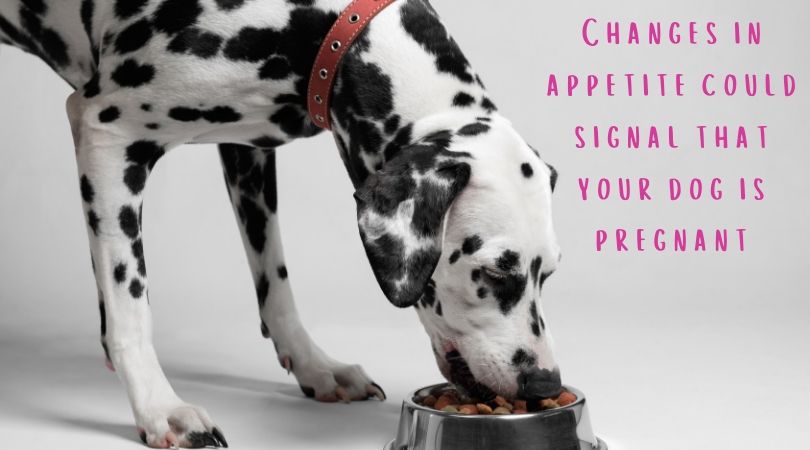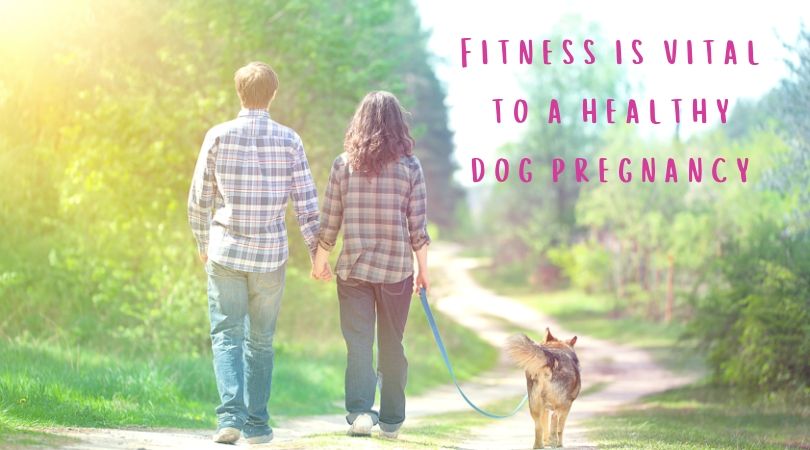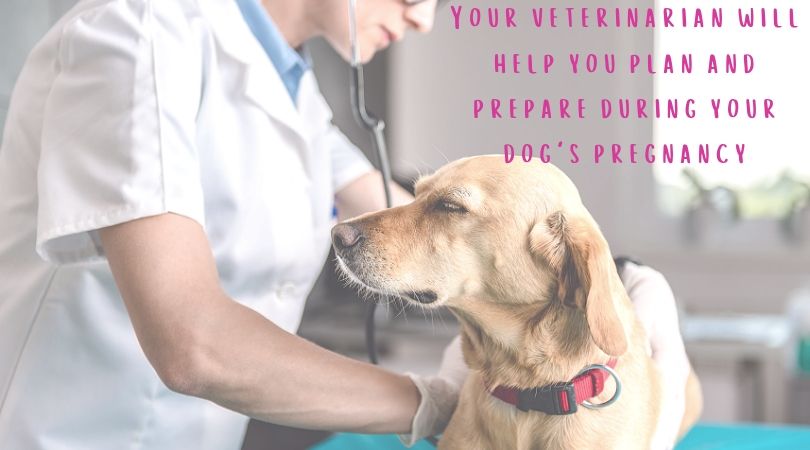When it comes to pet pregnancy, we believe Bob Barker said it best: “Help control the pet population. Have your pets spayed or neutered.” HOWEVER, if your dog IS pregnant, we also believe you should provide the very best care to her possible, from the moment you know she’s pregnant up until the big birth day, as well as post-pregnancy. It’s important to remember that even though your dog may still have some of the basic survival instincts of a wild dog, she is no longer an actual wild dog. She may not innately know what to do, and she will need your support while she’s pregnant as well as when delivering her puppies. Here are some tips to care for your pregnant dog.
How to Tell if Your Dog is Pregnant
A dog pregnancy isn’t always planned, and due to their relatively short gestation periods (about 56-70 days), some pet owners might not even know their dog is pregnant until they’re about to give birth! If you notice any of these signs of pregnancy in your unspayed dog, it's time to take her to the vet:
- Decreased Activity: If you notice your dog is spending more time napping than usual or becomes tired more quickly and/or easily during activity, it could be a sign that she is pregnant.
- Changes in Appetite: During pregnancy, your dog’s appetite could change in different ways due to her changing hormones. Just like a human, early on in the pregnancy she may eat less or vomit occasionally due to “morning sickness.” You also might notice her eating more than normal.

- Changes in Behavior: Pregnant pooches may seem “clingier” than usual and seek the comfort of their owners more. During the last few weeks of pregnancy, you may notice your dog beginning to “nest.” This could include shredding her bedding and other available materials to create a whelping area for her pups. She also might become irritable and reclusive or get more and more restless as her birth date nears.
- Changes to Nipples: During the early stages of pregnancy, your dog’s nipples may grow in size, become darker (indicating an increase in blood flow), and/or appear round compared to their usual flatness. They could also leak milk later in her pregnancy.
- Weight Gain and Larger Abdomen: This is generally one of the most obvious signs that your dog is pregnant (especially if you’ve noticed no other reason for your unspayed dog’s sudden weight gain).
Most of these signs of dog pregnancy can also be signs of illness, so even if you don’t think your dog is pregnant, it’s important to have any marked change in activity level, appetite, behavior, or appearance checked out by your vet.
What to Feed Your Pregnant Dog
Once you have determined that your dog is indeed pregnant, you will want to make sure she is getting the best nutrition (because growing puppies is hard work!). Run your dog food by your vet for approval – if she is already at a healthy weight and on a good quality dog food, your vet most likely won’t have you make any changes to her diet for the first part of her pregnancy.
During the second half of your dog’s pregnancy, as her weight increases in the last five weeks, the American Kennel Club recommends slowly increasing her food intake with small, frequent meals, until she consumes 35-to-50 percent more than usual (giving her larger meals can cause discomfort due to her having less room for her stomach to hold food). Your veterinarian will help you make a personalized determination for your dog.
Exercising Your Pregnant Dog

Giving birth to multiple puppies requires a lot of strength and energy, so it’s important that you keep your pregnant dog healthy and fit. Going for regular walks will help keep her primed and ready for the challenge of giving birth. Try to keep walks shorter, as your dog will most likely tire more easily as her pregnancy goes on. Try for three to five short walks a day, and always keep temperature and terrain in mind (i.e. no uphill hikes on a hot day). Avoid any rigorous activity, or even training/obedience schooling during your dog’s pregnancy; this can be stressful, and bumps or knocks from other dogs could hurt her unborn pups.
Taking Your Pregnant Dog to the Vet
Regular visits to the vet can ensure your dog stays healthy during her pregnancy. When you take your dog to the vet for the initial confirmation of her pregnancy, your vet will also examine her for any signs of illness and/or discomfort. Make sure to ask your vet how often you should bring in your pregnant dog for check-ups, as well as what they recommend as far as vaccinations and flea/worming treatments. If your dog is already pregnant and her vaccinations are overdue, discuss options with your vet. Dogs pass on immunity to their puppies through their milk, so your dog should ideally be up to date on her vaccines, but you will need to check which are safe for both pregnant dogs and their unborn puppies. Additionally, roundworms and hookworms can be passed unborn puppies, so confirm with your vet which flea/worming treatments are safe to use during your dog’s pregnancy.
Additional Considerations for Your Pregnant Dog
Most dogs deliver with ease and do not require any help. But be aware of any warning signs that things aren’t going well.
- Extreme pain: While giving birth won’t be a walk in the park for your dog, it also shouldn’t cause extreme pain. If your dog is showing signs of severe discomfort, call your veterinarian.
- Timing: Some dogs are slow to go into labor, but if your pregnant dog experiences strong contractions that last more than 45 minutes without a birth, or if more than two hours pass in between the delivery of puppies, call your veterinarian.
- Other warning signs: Trembling, collapsing, or shivering are all serious warning signs of complications. Additionally, dogs will normally deliver a dark green or bloody fluid after the first puppy, but if you notice this before the first puppy, call your veterinarian.

During regular veterinary visits, you’ll have the chance to develop a “birth plan” with the medical team. You’ll be able to consider the right place in your home for delivery, whether your veterinary team should make this a house call, how you may need to transport your dog to the veterinary office, which ER facility to contact outside of regular business hours, and more.
Pregnancy doesn’t have to be a stressful time for dogs and their owners. The more you know ahead of time, the easier it will be. After your dog delivers her puppies, you should take both the mother and her pups to the veterinarian for a post-natal checkup within 24-48 hours. If your dog became pregnant by accident, this is also a good time to discuss having your dog spayed, to prevent any more surprise litters.
If you have any further questions about pregnancy care for your dog, please contact us!
